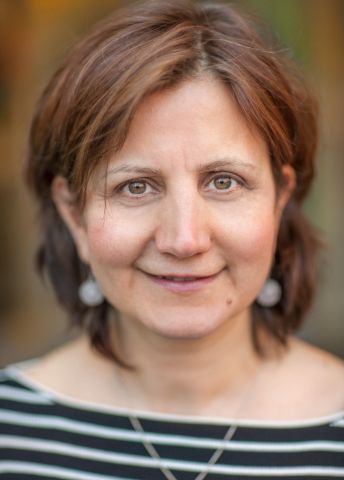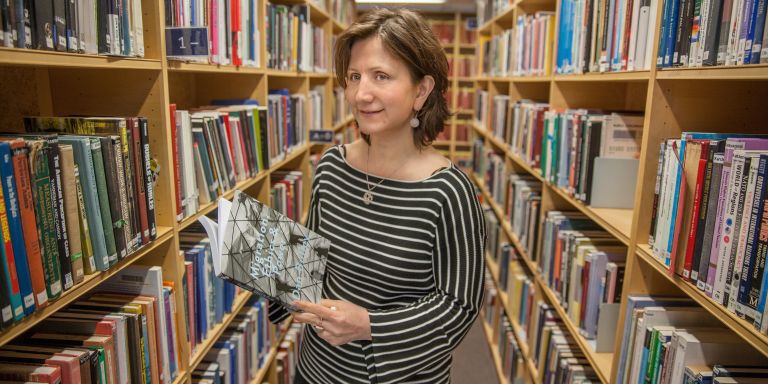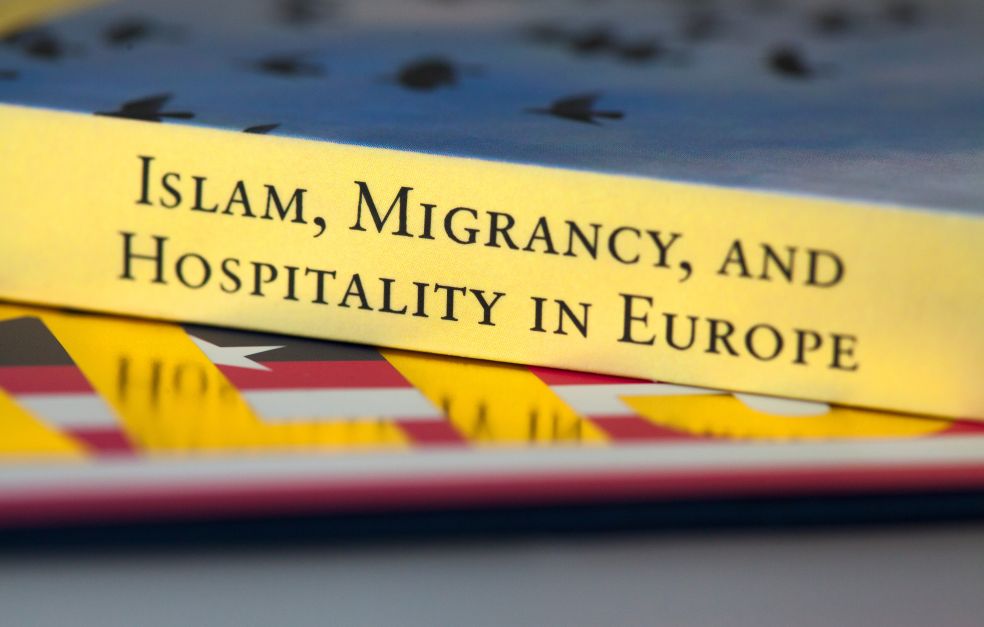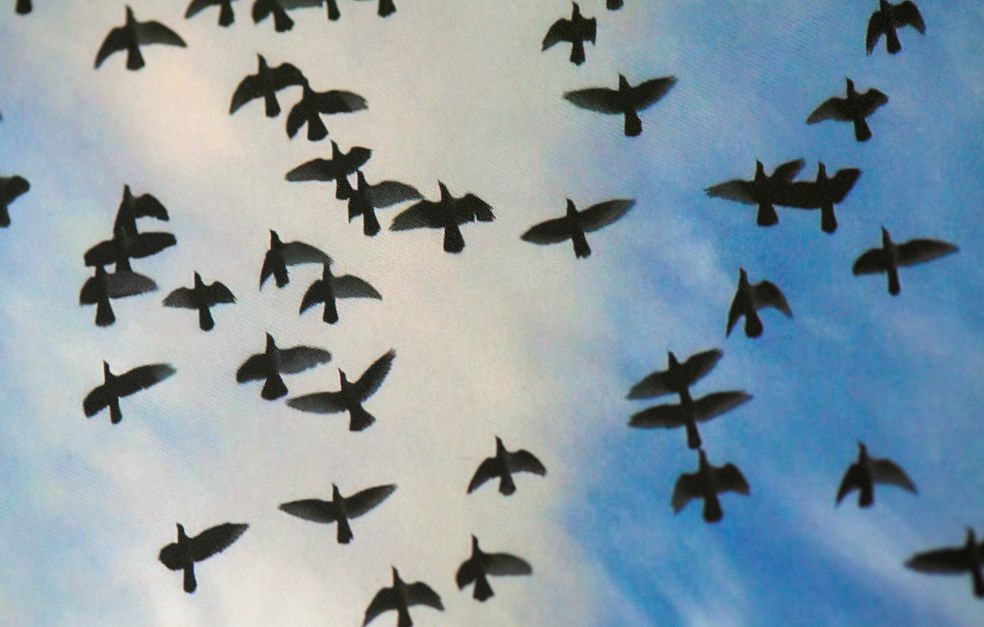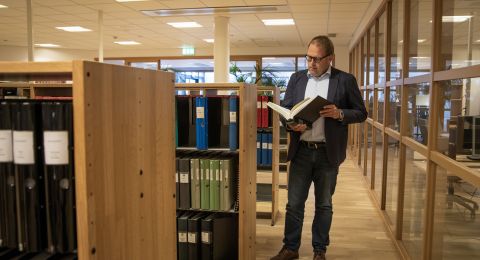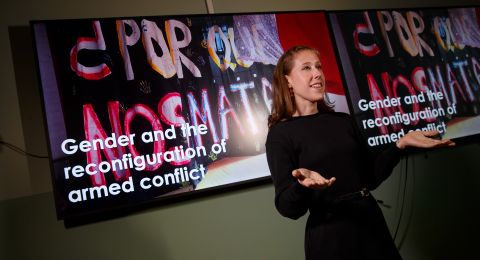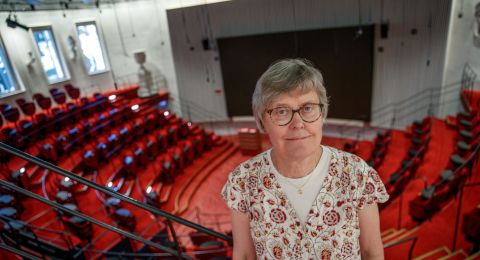Terms such as “host” and “hospitality” are more complicated than they might at first appear. They suggest not only goodwill, but also a position of power that sets the boundaries for what guests can and cannot do. Fataneh Farahani is now studying the impacts of the refugee crisis on hospitality. She is conducting field studies in four European cities, including Malmö in the south of Sweden.
Fataneh Farahani
Associate Professor of Ethnology
Wallenberg Academy Fellow 2015
Institution:
Stockholm University
Research field:
Migration, transnationalism and globalization, knowledge production, diasporas and sexuality
A Wallenberg Academy Fellow, Farahani has now embarked on a project entitled “Cartographies of hospitality”. Its aim is to examine the processes set in motion when someone arrives in a new country. The project centers on the term hospitality, which highlights the power relationship arising between host and guest. Farahani has chosen to use the English word hospitality instead of its Swedish equivalent: gästfrihet.
“In Swedish it’s not as analytical and rewarding. In English it’s possible to see the close relationship between hospitality and hostility. Guests have to behave in a certain way in order for the host to ‘open their heart’; otherwise hospitality can easily turn to hostility from the person in a position of power who has the privilege of being the host.”
Power relationship between host and guest
The project derives inspiration from Jacques Derrida, a philosopher, who elucidated the ethics of hospitality towards the end of his life. For Derrida, inviting someone into one’s home was a gesture of hospitality that triggered an ethical exchange. That exchange does not take place without tension, and locks the host and the stranger/visitor into different positions of threat and vulnerability.
“Derrida emphasizes that hospitality presupposes that the host has acquired a position of power, something that also risks controlling anyone who is received as a guest. Numerous formal and informal demands arise as to how a guest is supposed to behave. And we often hear examples of this in the public debate on integration.”
It is no secret that express or implicit conditions are often attached to hospitality. But we do not know enough about what these conditions are, and how they impact the “guest’s” ongoing situation – hospitality.
Farahani therefore wants to find out more about the forms taken by hospitality, and how it is practiced. She is doing this in fieldwork conducted in four European cities: Stockholm, Malmö, London and Istanbul. Her work there includes documenting work done locally by civil organizations and networks that support immigrants, asylum seekers and paperless migrants. Data gathering includes in-depth interviews with volunteer aid workers and migrants.
“Our study also includes religious organizations like churches and mosques, which have a long tradition of helping immigrants and asylum seekers.”
Research against the backdrop of a migration crisis
The migration crisis renders this research more topical than ever. The number of refugees in Europe rose sharply in summer 2015. The image of the body of a small boy – Alan Kurdi – washed up on a beach in Turkey was a wake-up call for many people. Politicians spoke of the need for open borders. In November 2015 the Swedish government announced its dramatic decision to impose border controls. Not since the Second World War had Sweden taken in so many refugees as it did in the autumn of 2015. The rapid course of events caused Farahani to realign the focus of the project.
“Originally the idea was to make a comparative analysis between Stockholm, London and Sydney, focusing on the different political and social contexts, and the historical background, including the British Empire and the denial of the rights of indigenous peoples, as in Australia, along with the Swedish view of itself as exceptional and a ‘humanitarian superpower’.”
As it is now designed, the project it will also need to document political events, and how they impact each other. Farahani elaborates:
“Europe uses Turkey as a gatekeeper. We cannot understand what is happening in Europe without considering developments in Turkey. We also see changes such as the post-Brexit situation in the U.K., the situation following the attempted coup in Turkey, and the introduction of more stringent asylum regulations in Sweden.”
In the future the research may help to establish a more nuanced scientific debate, and more nuanced political decisions on questions of integration, immigration and multiculturalism.
“Admission as a Wallenberg Academy Fellow is an important recognition of my research. Since many Fellows are natural scientists, I see it as a particular honor to have received the award as a researcher in the humanities. To be granted five years’ research funding is a privilege, which I hope will enable me to create a migration resource and research center.”
From Iran to Sweden
Farahani herself was a refugee, arriving in Sweden from Iran in the 1980s. She has also lived and worked as a researcher in Australia and Canada. Her experiences have helped her in her research. Her doctoral thesis included in-depth interviews on sexuality with women who had come to Sweden from Iran. She has also researched on constructions of masculinity among Iranian men in London, Sydney and Stockholm.
Farahani describes the concept of “home” as a consistent theme of her research:
“This question has been the driving force behind my research: when can someone call a place ‘home’? This has gradually led me to ponder what happens when someone with a home invites others in: what power relationships are created, and how should guests behave so that hospitable hosts will open their doors? By problematizing the dichotomy between ‘host’ and ‘guest’, I am also interested in whether a ‘guest’ can ever be transformed into a ‘host’, and in the hierarchies created among guests depending on the length of time they have lived in a place or where they come from.”
Text Nils Johan Tjärnlund
Translation Maxwell Arding
Photo Magnus Bergström
